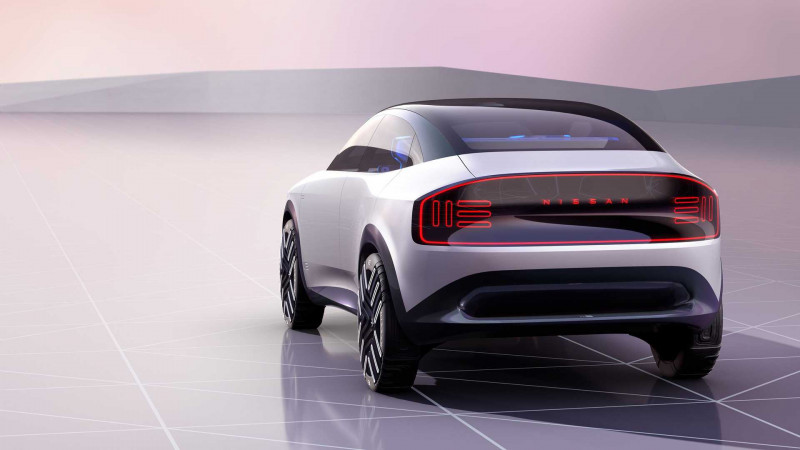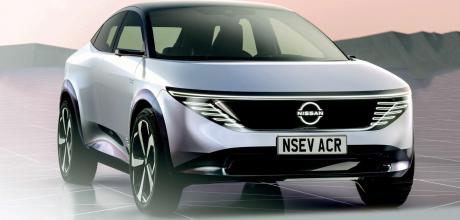New 2023 Nissan ‘Leaf’ EV’s successor to be UK-built SUV
UK-built Leaf successor to lead Nissan’s EV charge. Nissan will release 15 new bespoke electric cars by 2030, including innovative SUV.
Nissan will build a mid-size electric SUV in the UK, replacing its pioneering Leaf hatchback as one of 15 all-new EVs due by 2030. Previewed by the new Chill-Out concept, the as-yet-unnamed crossover will go on sale in around 2025 and sit beneath the Ariya SUV, with similarly rakish proportions and closely related underpinnings.

Nissan’s boss in Europe, Guillaume Cartier, has previously confirmed that it will succeed the Leaf, which has been on sale in its current form since 2017. This will take the number of SUVs in the brand’s European range to five.
It will sit atop the Renault- Nissan-Mitsubishi Alliance’s CMF-EV platform, which has already been deployed in the Ariya and Renault’s smaller Mégane E-Tech Electric.
The new SUV’s powertrain details remain undisclosed, but “breathtaking acceleration and an unparalleled feeling of control” have been promised. The CMF-EV architecture can host either a single-motor front-wheel-drive or twin-motor four-wheel-drive set-up.
In the range-topping Ariya e-4orce Performance, the latter allows for a maximum output of 389bhp and a 0-62mph time of 5.1sec. The Chill-Out concept is equipped with four-wheel drive, but the eventual production version could be offered with the similar-size Mégane E-Tech Electric’s 128bhp and 215bhp single-motor powertrains.
Nissan has also hinted that the Leaf replacement will represent a step change in terms of autonomous driving potential, with the Chill-Out concept majoring on space, minimalism and “advanced safety technologies”.
The production version will tone down this approach – losing the dashboard-cum-footrest, rear-hinged doors and hideaway steering wheel, for example. However, Nissan has committed to enhancing the autonomous potential of its cars, rolling out its ProPilot driver assistance software to 2.5 million vehicles (including non-European Infiniti models) by 2026 and installing next-generation lidar sensors on “virtually all models” by 2030. The SUV will play a key role in the transformation of Nissan’s European operations, entering production in Sunderland as part of the Japanese firm’s £1 billion investment in the future of its UK plant, which is to become a “flagship EV hub”.
The EV36Zero initiative, funded by Nissan, battery-production partner Envision AESC and Sunderland City Council, will result in the facility being radically overhauled before production of the new model starts, probably in 2025. Crucially, Envision’s on-site battery plant will be dramatically expanded to provide batteries for all Nissan EVs, including the new SUV. Annual capacity will initially be upgraded from 1.7GWh to 9GWh, ramping up to 25GWh by 2030 and 35GWh in 2040. It will supply batteries for up to 100,000 Nissan EVs per year, but it isn’t yet confirmed whether the Leaf replacement will be the first to use Envision’s new Gen5 battery technology, which is said to increase energy density by 30% for improved efficiency and therefore range. The current Leaf achieves up to 239 miles of range with its largest (62kWh) battery, which the successor will improve on significantly. But that might be possible even with the Mégane E-Tech Electric’s 60kWh unit, which gives it up to 292 miles. The Leaf’s transformation from hatchback to crossover comes as Nissan winds down development of lower-slung models in favour of SUVs.
Apart from the Leaf, the Micra supermini is the only mainstream car Nissan offers outside the SUV segment, and its replacement will use underpinnings sourced from elsewhere in the Alliance. A likely sibling for the next Micra would be Renault’s new 5, which will arrive in 2024, using the new CMF-BEV small car platform and offering a range of nearly 250 miles.
Chill-Out concept previews Leaf replacement.
Nissan will usher in electrified options for all passenger cars in Europe by the end of 2023, on its way to achieving a 75%-plus electrified sales mix by 2026.
Nissan will open two new battery-repurposing facilities, one in Europe in 2022 and the other in the US in 2025, as part of its drive to cultivate a ‘circular economy’.


